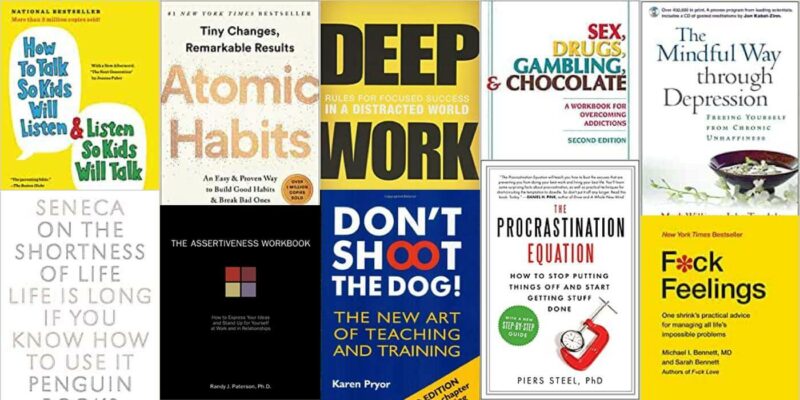As a psychologist and therapist, I know how brutal it is to live with chronic anxiety.
Besides the pain of anxiety itself, there are all the nasty side effects that go with it:
- Constant stress and anxiety
- Poor sleep and insomnia
- Lack of focus and productivity
- Difficulty being present with loved ones
But I also know how possible it is to escape the cycle and seriously lower your anxiety. I’ve helped hundreds of people do it over the years.
But here’s the catch:
If you want to feel less anxious, you have to know what’s really causing your anxiety in the first place.
This is harder than it seems because of all the myths and misconceptions floating around about anxiety.
But in the rest of this article, I’ll walk you through four causes of anxiety that a lot of people miss. If you can learn to identify them in your own life, you’ll have taken the most important step in lowering your anxiety for good.
1. You try to avoid anxiety
Feeling anxious is uncomfortable—sometimes painful even. And it’s human nature to try and avoid or get rid of things that cause pain. Touch a hot pan, for example, and your hand recoils immediately.
So it’s not surprising that a lot of people with anxiety end up in patterns of anxiety avoidance. For example, if you tend to get anxious around new people, it wouldn’t be surprising if you got into the habit of avoiding parties or events with people you didn’t know.
But natural as it is to avoid the pain of anxiety, there’s a big problem with it…
When you avoid your anxiety you teach your brain that it’s dangerous.
The fear center of your brain learns what to be afraid of (and what to be confident of) in large part depending on how we react to things. If you habitually run away from or try to get rid of something, that sends a very strong signal to your brain that that thing is dangerous.
In the case of anxiety, when you avoid or try to get rid of your anxiety, you might feel a little relief in the moment. But you’re setting yourself up for worse anxiety next time because the minute you start to feel anxious about something, your brain is going to get anxious about being anxious!
The only way to break the cycle of anxiety avoidance and ever-increasing levels of anxiety is to start accepting and tolerating your anxiety instead of trying to avoid it or get rid of it.
2. You’re addicted to worry
A lot of people who struggle with anxiety are confused about the relationship between worry and anxiety. Specifically, they think that their anxiety causes them to worry. For example: you get on a plane, the doors shut, you begin to feel panicky, and then you start worrying uncontrollably.
While it does often feel like anxiety causes worry, in reality, it’s the other way around: worry causes anxiety. If you think about it, the plane doors closing didn’t themselves lead to the emotion of panic. Instead, it was the story you told yourself about what those doors closing meant that led to your anxiety… Oh my God, I’m trapped. What if something happens? Or I can’t do this… What if I have a panic attack in the middle of a four-hour flight?
The implications of this are hugely important…
If you want to feel less anxious, you must learn to control your worry.
The thing about emotions like anxiety is that you can’t control them directly. There’s no dial for lower anxiety you can turn just like there’s no lever for increased joy you can pull. That’s not how emotions work.
Instead, you can only influence your emotions indirectly by controlling how you think instead. If you worry constantly, you’re going to feel constantly anxious. But if you can break the habit of chronic worry, nothing will have a more dramatic effect on your overall anxiety.
So the next time you’re feeling anxious, remember…
Accept your anxiety, control your worry.
3. You have poor boundaries
It’s hard not to feel constantly anxious if you’re under constant stress. And one of the biggest triggers of stress is your relationships with other people.
For example:
- Your overbearing mother-in-law who’s constantly ignoring your requests for handling your kids
- Your workaholic boss who’s constantly giving you unnecessary work
- Your emotionally needy husband who constantly goes to you for validation and reassurance any time he’s anxious
Now here’s the thing: These people may be the initial trigger for your stress and anxiety, but they’re not really the problem. The real problem is your lack of boundaries.
Ultimately, you can’t control other people. And often, even our best efforts to persuade or convict them to do things differently are pretty useless. Which means the only way to protect yourself from the stress of other people is to set (and enforce) healthy boundaries.
For example:
- If your mother-in-law comes in like a bulldozer insisting that you take the kids to the Nutcracker for Christmas despite your already packed schedule, you say no. And if she starts guilt-tripping you and being passive-aggressive, you hold your ground.
- When your emotionally needy partner goes to you for the 15th time today asking for reassurance about their anxiety, you gently but firmly tell him that you’re not having that conversation again.
At the end of the day, you will feel chronically anxious if you’re chronically stressed out. And the only way to minimize chronic stress is to be willing to set and enforce healthy boundaries with stressful people.
4. You’re judgmental of your anxiety
In #1 above, we talked about how constantly avoiding your anxiety actually makes you more anxious in the long run because it teaches your brain to fear anxiety itself.
Well, the same thing happens when you’re constantly judgmental of yourself for feeling anxious—when you habitually treat your anxiety like an enemy to be eliminated, your brain is going to become more afraid of it, which means even more anxiety for you.
For example:
- Say you misspeak during a presentation at work.
- You immediately worry if people think you’re dumb, and unsurprisingly, you start to feel a little anxious.
- But then as soon as you feel anxious, your overly-judgmental self-talk pipes up and you start telling yourself how God, why do I get so anxious all the time? I should be stronger than this! Or, Zoe always seems so calm and confident, why can’t I stop being anxious and just be more like her?
- Now, on top of your initial anxiety, you’ve created a second layer of painful emotion, including more anxiety and shame.
- This means you’re going to be even more self-conscious, more likely to keep worrying, and therefore get even more anxious.
The solution is to practice a little self-compassion with your anxiety instead.
The next time you feel anxious, try treating yourself the same way you would treat a good friend who was struggling—with support and kindness, not criticism and judgment.
Next Steps
If you’re interested learning to be less anxious, here are a few resources from me:





6 Comments
Add YoursThanks Nick !
Great summary of how to treat you kindly when you feel the pain of anxiety. BIG Thanks Nick.
I’ve discovered you via Medium, and because of your writings (and others) now I’m a Premium member. Thanks for sharing your thoughts and knowledge!
Never realized by avoiding anxiety I am worsening the problem. Thank you for outlining the steps needed to tackle the problem. I am definitely going to try to implement them in my daily life.
This, this is brilliant
“The next time you feel anxious, try treating yourself the same way you would treat a good friend who was struggling—with support and kindness, not criticism and judgment.”
Dear Nick, I do not entirely agree with what you are saying in Point 2: worry is what creates anxiety. There are other factors, for example Hormone changes in middle ages women or Hormone changes in premenstrual women that lead to them to be more prone to anxiety. Thr anxiety might just start out of the blue and the thoughts ans worries Start after as in:” why do I feel so anxious…?” And then the pondering and worrying starts after, when the brain has found a subject thatit can get latched to and feel anxious about. This is very difficult to deal with. I would be very very interested in hearing what you know about the subject “women, hormones and anxiety”.
It would be wonderful to know about this. I have a lot of women in my TCM practice that come to me saying that they had started Hormone replacement therapy and that that was the only thing that helped them to get rid of crippling anxiety and panic attacks. Another example of women and physical issues that I have encountered in my holistic practice is chronic Iron-defiency-syndrome, where the Haemoglobin is still ok in the lab, but the Ferritine is very low. Women in this situation (often women who have had kids and were breastfeeding and lost a little of their iron and other nutrients, B12 I.e.) often suffer from insomnia, being very “thin-scinned” and prone to worry and anxiety. I have not foubf much on the topic of women’s emotional-physical health when it comes down to anxiety.
I am going through the very same thing right now. I have practically no anxiety during the month, but a week or so before my cycle, I have a very difficult time with managing anxiety. “Did I say something stupid to my boyfriend?” Or, “Did i mess up that report at work?” It’s dreadful at times, and a week later I feel like I overreacted. Now I’m closer to premenopause but still experience PMS/PMDD.
Nick, we’d love some I sight on hormones and anxiety if you would have some time to focus an article on that! Thank you for your excellent articles, they help so much.